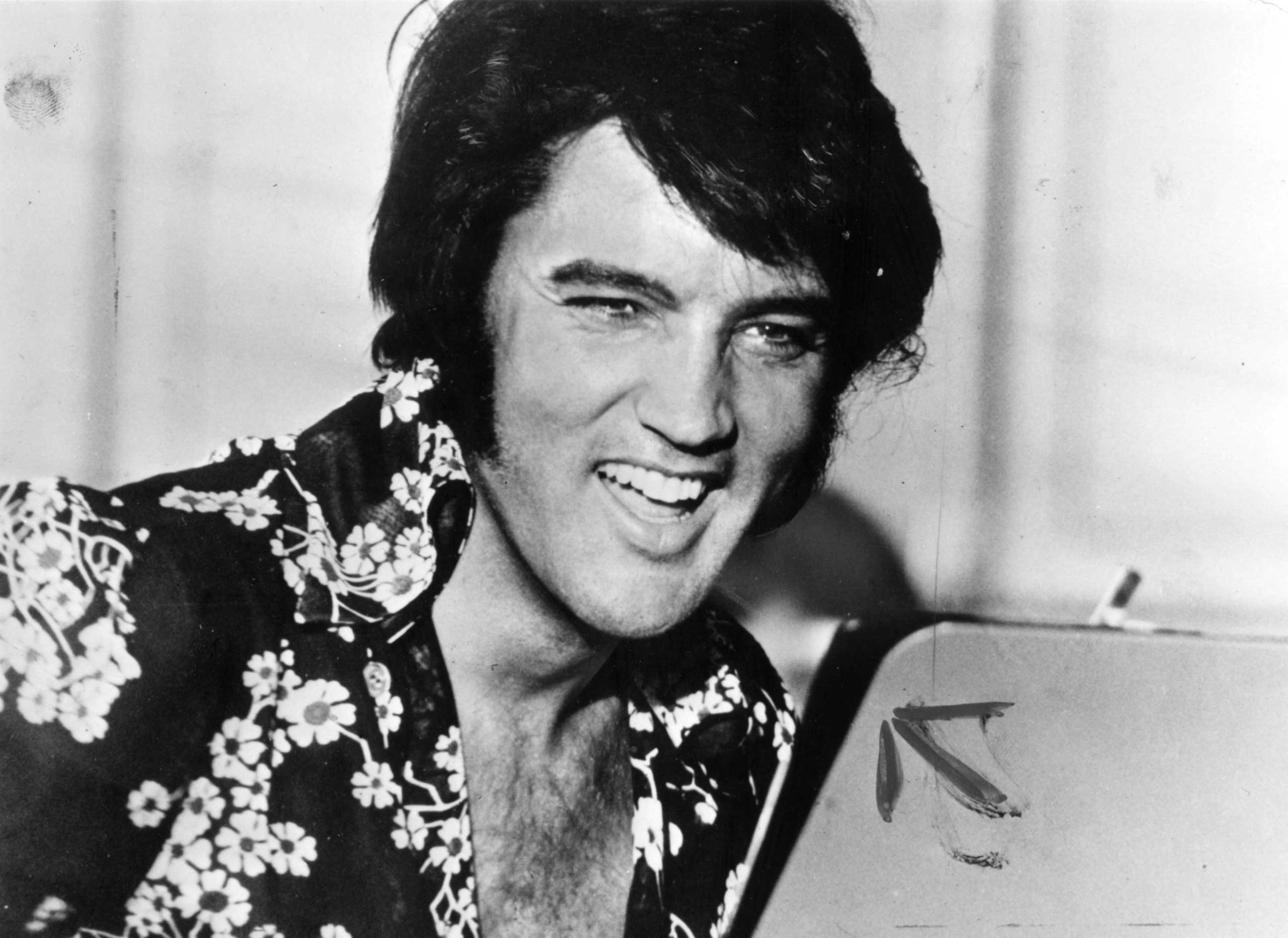
This is an excerpt from the LIFE book Remembering Elvis Presley, available at stores now as well as at the Time Shop http://ti.me/2uZEeB7 and at Amazon http://amzn.to/2sOz25C.
There’s plenty of kitsch to indulge in on a visit to Graceland, the estate-turned-tourist-mecca where Elvis lived for the last 20 years of his abbreviated life. You might stay in a nearby motel with a guitar-shaped swimming pool and in-room televisions that show Elvis movies 24 hours a day. You might find yourself in a diner ordering deep-fried peanut butter and banana sandwiches. You might pony up for a stained-glass Elvis Christmas tree ornament.
But theme meals and tchotchkes would not be enough to lure the 600,000 visitors who come to Graceland each year, even now, 40 years later. Forty years, that is, since the hot-awful summer of 1977 when, on the evening of August 16, newscasters and headline writers in 50 U.S. states and then in provinces around the world began to spread the news: Elvis Presley, dead at 42.
The flags in Memphis flew at half-staff the next day and thousands of fans traveled to Elvis’s home, to Graceland, to view him in his casket. When his hearse drove through Memphis for the funeral the day after that, many more thousands—half a million, some guessed—stood on the streets.
Graceland is a 17,552-foot, 23-room mansion on 14 acres in South Memphis, off what is now known as Elvis Presley Boulevard. It’s about a hundred miles from the two-room shotgun shack in Tupelo, Mississippi where Elvis was born, seven miles from the public housing apartment where he lived as a teenager and barely a 10-minute drive from Sun Records studio where, in 1954 at the age of 19, Elvis made his first commercial record.
Small world.
What you get out of a trip to that world—and why Graceland is so hugely successful, and touching in its way—is an impression of the man, not just the phenomenon or the caricature. You leave with the certain feeling that you’ve gotten to understand him somehow. Even despite an enormity of fame and global idolatry almost incomprehensible in a modern, Twitter-riddled world, Elvis remained unceasingly authentic. Garish and showy and heavy handed in his taste, he was, to the bone, Elvis himselvis, the kid from small-town Mississippi made inordinately good.
That first record at Sun was Elvis’s high-spirited version of an old blues song called That’s All Right (Mama), which fits his story-line neatly given that Elvis had first come to Sun Studio to record a song for his own mama, Gladys, whom he lived with until the day she died. Gladys is now buried, alongside Elvis and Elvis’s father, Vernon, and Vernon’s mother, Minnie Mae, in a place called the Meditation Garden at Graceland. This is where Spinal Tap guitarist Nigel Tufnel, quietly surveying Elvis’s grave, observes: “It really puts perspective on things, though, doesn’t it?” To which Tap frontman David St. Hubbins responds: “Too much, there’s too much f—ing perspective now.”
Sendups aside, the sensation of getting to know Elvis comes not from reflecting at the burial site but rather from the rooms throughout the house. There’s the green shag carpeting and the faux waterfall, the tiki-like furniture bought as an ensemble out of a local furniture shop’s showroom display, the lightning bolt on the wall and the white porcelain monkey on the table. Also, there are the many televisions, a dozen or more, including three side by side. The TVs seem as if they were collected as a quintessentially American show of wealth and success—in the way that having an abundance of turkeys and geese signaled wealth in Tevye’s Russia. Elvis had an unapologetic appetite for the obvious.
On such a TV screen you might see Elvis, in the mid 1950s, in all his marvelous, hip-swiveling virility, belting out Heartbreak Hotel or Don’t Be Cruel or another in the sudden outpouring of hit songs that reframed popular music then and forever. And on another TV screen you might see him in the 1970s, bloated by all he had consumed, in that studded white jumpsuit, singing Suspicious Minds, perhaps, or Simon & Garfunkel’s Bridge over Troubled Water, sweat descending in rivulets down his changed familiar face, eyes closed, and still with that voice, deep and melancholy and free of constraint. Elvis at the start and Elvis to the end: Beautiful, brilliant, and true.
More Must-Reads from TIME
- Cybersecurity Experts Are Sounding the Alarm on DOGE
- Meet the 2025 Women of the Year
- The Harsh Truth About Disability Inclusion
- Why Do More Young Adults Have Cancer?
- Colman Domingo Leads With Radical Love
- How to Get Better at Doing Things Alone
- Michelle Zauner Stares Down the Darkness
Contact us at letters@time.com